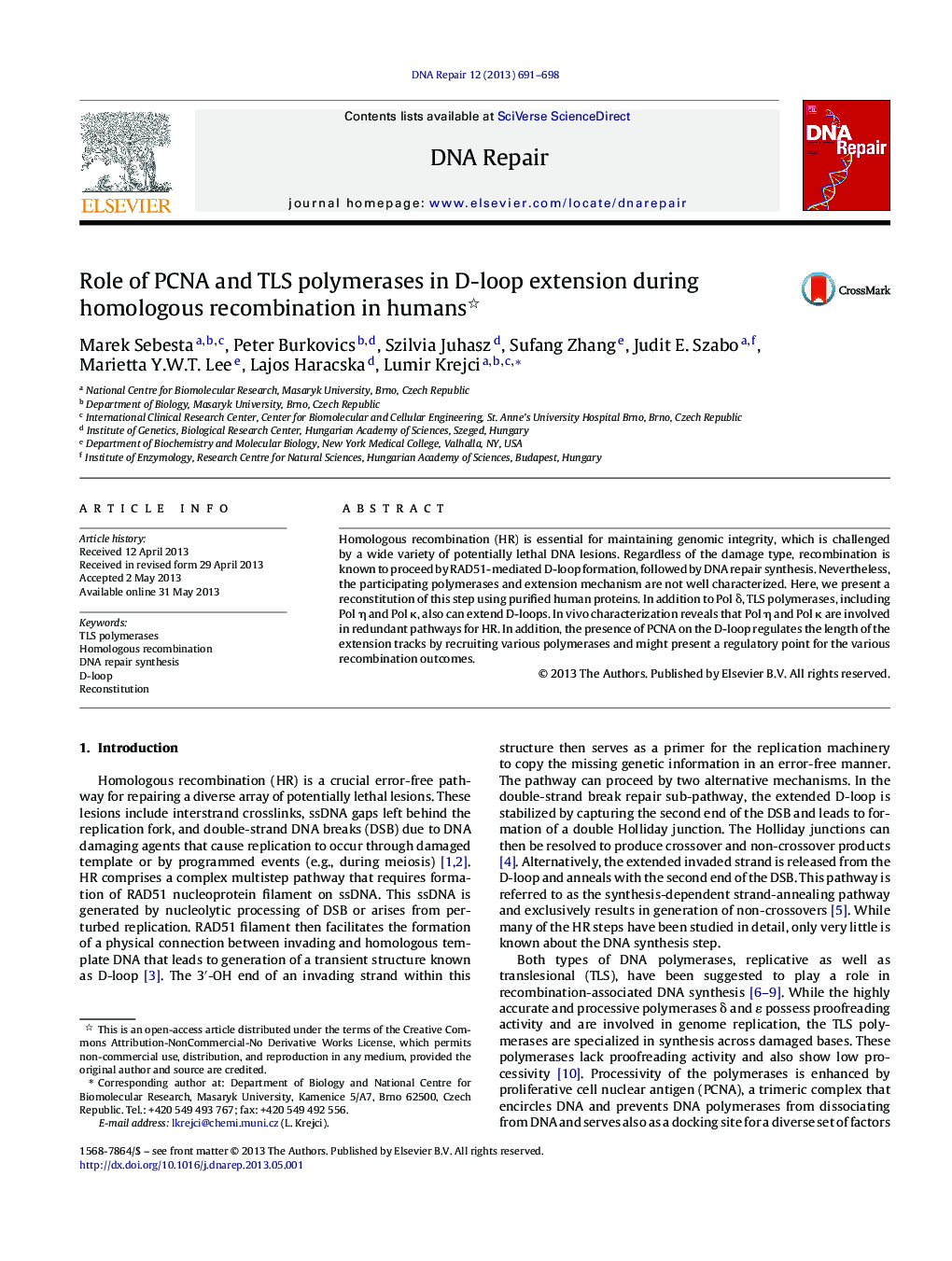| Article ID | Journal | Published Year | Pages | File Type |
|---|---|---|---|---|
| 10823357 | DNA Repair | 2013 | 8 Pages |
Abstract
Homologous recombination (HR) is essential for maintaining genomic integrity, which is challenged by a wide variety of potentially lethal DNA lesions. Regardless of the damage type, recombination is known to proceed by RAD51-mediated D-loop formation, followed by DNA repair synthesis. Nevertheless, the participating polymerases and extension mechanism are not well characterized. Here, we present a reconstitution of this step using purified human proteins. In addition to Pol δ, TLS polymerases, including Pol η and Pol κ, also can extend D-loops. In vivo characterization reveals that Pol η and Pol κ are involved in redundant pathways for HR. In addition, the presence of PCNA on the D-loop regulates the length of the extension tracks by recruiting various polymerases and might present a regulatory point for the various recombination outcomes.
Related Topics
Life Sciences
Biochemistry, Genetics and Molecular Biology
Biochemistry
Authors
Marek Sebesta, Peter Burkovics, Szilvia Juhasz, Sufang Zhang, Judit E. Szabo, Marietta Y.W.T. Lee, Lajos Haracska, Lumir Krejci,
